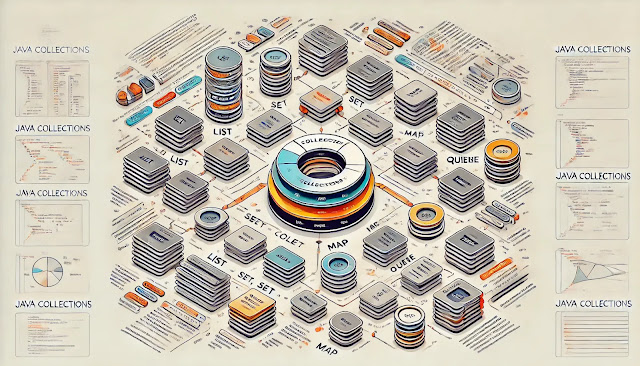Introduction
- Overview: Highlight the complexity and breadth of Java as a programming language and its significance in technical interviews for various positions.
- Objective: Explain that the blog will offer targeted advice on mastering Java's nuances to excel in technical interviews.
Understanding Java's Core Concepts
Data Types and Variables:
- Discuss the importance of understanding primitive vs. reference data types, variable scope, and life cycle.
Control Flow Statements:
- Explain decision-making structures like if, else, switch, and looping constructs such as for, while, and do-while loops.
Error Handling and Exceptions:
- Provide insights into Java's exception handling model, including try, catch, finally blocks, and custom exceptions.
Advanced Java Features
Object-Oriented Programming:
- Dive into the principles of OOP in Java: encapsulation, inheritance, polymorphism, and abstraction.
- Discuss the design and use of interfaces and abstract classes.
Collections Framework:
- Explain the importance of the Collections Framework and differences between various collections like List, Set, Map, and Queue.
Concurrency:
- Address complex topics such as threading, synchronization, and concurrent data structures provided by the Java concurrency API.
Java 8 and Beyond
Functional Programming:
- Introduce Java 8 features like Lambda expressions, Streams API, and functional interfaces.
- Discuss the impact of functional programming on Java development.
API Enhancements:
- Highlight enhancements in recent Java versions, such as the HttpClient API, Text Blocks, and Records.
Preparing for the Interview
Practical Code Challenges:
- Discuss common coding problems and algorithms relevant to Java interviews.
- Offer tips on approaching coding challenges efficiently.
Behavioral Questions:
- Provide strategies for answering questions about past projects and teamwork experiences.
Mock Interviews:
- Emphasize the importance of practice through mock interviews focusing on Java-specific questions.







0 Comments